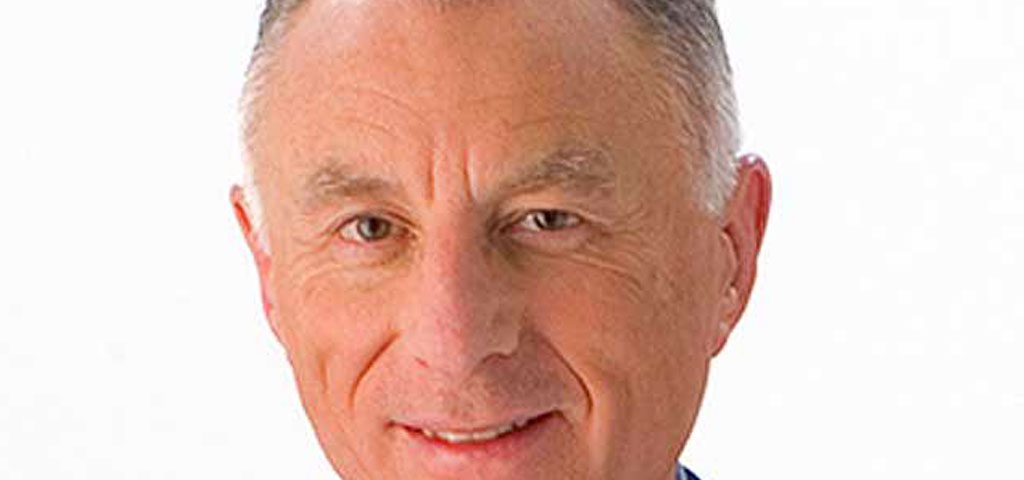
A Time for the USOC to Act
February 26, 2018
Trump Signs Bill Aimed at Preventing Sexual Abuse
March 1, 2018An interview by Moby Salahuddin
David D. Dodge (david@sprtsoc.com) was interviewed in November 2017 by Moby Salahuddin (msalahuddin@sc.rr.com), a writer in Columbia, South Carolina.
David D. Dodge is the former President and CEO of a risk management firm serving hospitals and health systems in South Carolina; the founder and CEO of Sports Officiating Consulting, LLC; and a board member at the National Association of Sports Officials.
MS: In your numerous postings on The Compliance & Ethics Blog maintained by the Society of Corporate Compliance and Ethics (SCCE), and as a board member at the National Association of Sports Officials, you have repeatedly called for sports organizations to adopt formal compliance programs. You are probably among the very few people in the country who have been pushing for such a change. How did you get interested in this issue?
DD: My interest in promoting compliance programs in sports organizations dates to my years officiating college basketball games and my work as CEO of a risk management firm serving hospitals in South Carolina. In my close involvement with sports, albeit on a part-time basis, I occasionally observed incidents of wrongdoing and heard about other transgressions involving recruiting violations, harassment of athletes, conflict of interest, etc.
It gradually became clear to me that sports organizations are headed towards a big fall, because hardly any of them—high school associations, college sports programs, sports under the United States Olympic Committee (USOC) umbrella, professional leagues—have a formal compliance program in place that can receive reports of wrongdoing and respond effectively.
Like many sports fans, I too have followed the scandals that have plagued sports at all levels: the Donaghy mess about an NBA referee involved in betting on professional basketball games, the sexual-abuse scandals at USA Gymnastics and some other USOC sports, hacking of a competitor’s database by an executive of a major league baseball team, and the recent college basketball scandal involving alleged improper payments to families of recruits.
In most of these instances, and in so many others, one can’t help but conclude much of the tragic wrongdoing could probably have been prevented if an effective compliance program had been in place.
MS: How did your experience as CEO of a risk management firm serving hospitals shape your perspective?
DD: I observed firsthand how hospitals have benefited from compliance programs focused on prevention, detection, and correction. The hospital industry began implementing these initiatives nearly 25 years ago. Today, they are very much a part of the culture at almost all hospitals and health systems in the country, much as compliance programs are an integral part of the financial services sector and other industries.
Moreover, we had an effective compliance program at the company where I worked, and as the CEO, I developed a clear understanding of and appreciation for the benefits of such a program.
MS: Most casual observers and sports fans assume sports organizations have some sort of a compliance program or at least a designated official keeping a close eye. Is that not the case?
DD: In many respects, the sports industry in the U.S. is not as regulated as you might expect, and certainly not in comparison to healthcare, financial services, and the defense industry. In those sectors, the government expects and demands that organizations have effective compliance programs in place.
Also, compliance programs are common in many businesses and industries because they are good for business. But in sports, an industry that is still maturing, comprehensive preventive programs have yet to gain a foothold. Even at the nation’s major universities, where compliance programs are common, such initiatives often seem to stop at the door of the athletic departments, which tend to focus on NCAA rules and regulations.
MS: Last year, the United Kingdom’s Football Association set up a hotline to receive reports from victims of sex abuse in soccer programs. Media reports indicate the association received more than 1,000 calls, some of them relating to abuse in rugby, gymnastics, tennis, swimming, and golf. Would a similar initiative work in US sports?
DD: A hotline is a very important and necessary part of a compliance program, but it alone is not sufficient. I think sports administrators who think they can cut corners by just installing a hotline would quickly run into all sorts of difficulties. Who will answer the hotline, a department within the organization or an outside party? How would they guarantee anonymity? Who would receive reports of wrongdoing? Who would investigate them? How would the organization assure employees, its board of directors, and outside parties that reports of wrongdoing are investigated and not swept under the rug?
Also, I think it bears emphasizing that in sports, as elsewhere, not all issues areas clear as black and white. Employees, board members, athletes, officials, and even top management need training on at least an annual basis to understand what is permissible behavior and what isn’t; regulations and societal expectations keep changing, sometimes in an unexpected direction.
Besides, each sports organization should have an appreciation of where its vulnerabilities lie—for instance, some college programs get into trouble because of overzealous boosters. A risk assessment— which is another component of an effective compliance program—would alert coaches and staff and athletes how accepting seemingly innocuous gifts could land them in trouble.
MS: What are the barriers to developing compliance programs in sports? By now it should be obvious sports are as troubled as most other sectors in our society.
DD: I think the mind-set appears to be that most of the wrongdoing in sports is not preventable, because it is merely the result of individual misbehavior. Very few sports leaders have firsthand experience or close familiarity with compliance programs, so they are reluctant to embrace a foreign concept. They can’t quite see why they need to go through all that expense and trouble.
Another barrier is that sports leaders are protective of their turf; they don’t want an outside party or organization telling them what to adopt and how to implement it. In one of my blogs last year, I floated the idea of a central or a shared compliance program for all sports under the United States Olympic Committee umbrella. The reaction I received was that such a program would not work, because each sport could do a better job of developing a program specific to its unique needs.
MS: Perhaps the recent revelation by The Washington Post that, over the past three decades, nearly 300 coaches and officials associated with U.S. Olympic sports have been accused of sexual misconduct might change some minds. Since this report comes on the heels of a major scandal in college basketball, it might have more impact.
Let’s assume a coach or an athletic department head wants to adopt a compliance program. What should be the first steps?
Very few sports leaders have firsthand experience or close familiarity with compliance programs, so they are reluctant to embrace a foreign concept.
DD: Here we truly have some good news, because there are plenty of resources and an abundance of compliance professionals who can be of help. Of course, one excellent resource is SCCE. A very basic first step for sports administrators might be to familiarize themselves with Compliance 101, Second Edition, published by the SCCE.
Another useful resource is the ULTIMATE Hotline Resource Manual by Richard Kusserow and Carrie Kusserow of Strategic Management Services, LLC. This guide includes templates for policies, procedures, notices, forms, and numerous best-practice tips.
Since sports are among the very few activities that bring us together, I am sure sports organizations will have the best wishes of fans everywhere as they embark on adopting much-needed reforms.
MS: Thank you, David, for sharing your experiences with us. ✵


